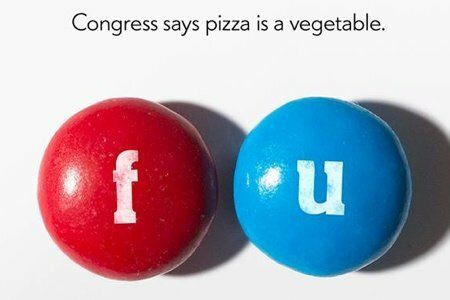How Fed Up Are You?
June 12, 2014 27 Comments
Snack Girl didn’t want to touch reviewing this film with a ten-foot pole. But, I keep getting asked about it so here I go.

I wanted to love Fed Up - here is a summary:
Everything we’ve been told about food and exercise for the past 30 years is dead wrong. FED UP is the film the food industry doesn’t want you to see. From Katie Couric, Laurie David (Oscar winning producer of AN INCONVENIENT TRUTH) and director Stephanie Soechtig, FED UP will change the way you eat forever.
I should disclose that a friend of mine, Michael Moss, author of Salt, Sugar, Fat is in the film. He is quite good in it ☺
Ummm. It is really hard to be me and watch this film because I have read all the background – I have studied the work of all the “talking heads”, mostly white men, that populate the film.
The problem is clear. We have an obesity epidemic and it has lasted 30 years. It is a public health crisis. In 2009, I was motivated by this crisis to start Snack-Girl.com and help people find alternatives to junk food.
Who is to blame for our crisis? In the film the bad guys are the corporations who create crappy food that is addictive and the government who doesn’t regulate junk food and feeds our kids junk at school lunch.
I believe the film-makers want us to get Fed Up and get Congress to act.
On Snack Girl, I stay far away from discussing politics because this site is a source for healthy eating inspiration, not a place to share or argue political views. So, I am not going to side with the film-makers and say this idea makes sense (or not).
They also want us to take a 10 day challenge to avoid added sugar - which I think it is a good idea. I would try one day first, though, and see how you do. Once you realize how many of the foods you eat have added sugar, you can start making your own (like salad dressing).
What I will say, is that having Michael Pollan (who sits on a hill in Berkeley, CA) tell us one more time that we need to cook is unnecessary. We know we need to cook, and eat whole foods, and stop eating processed crap.
The documentary could have helped by finding people who made the shift and having them talk about how their lives changed.
This film profiles a couple of overweight teenagers and it breaks my heart to see kids unable to change their weight. But I left wondering why there wasn’t a registered dietician involved with their families. Was there no one who could help these kids? Why would the filmmakers not try to help them? Why not fly Michael Pollan over so he could feed them some arugula?
I believe a better film would have framed the problem and then given a raft of solutions to help individuals and communities eat healthier. It seems superficial to ask us to quit sugar for 10 days instead of talking about all the people, programs, and communities involved in changing things (even incrementally).
My favorite documentary on food is Super Size Me directed by and starring Morgan Spurlock. He eats at McDonald’s for 30 days and talks about fast food in such a way that made me never want to eat it again.
Did you see Fed Up? What did you think?

First 20 Comments: ( See all 27 )
Mary Beth
Dawn Mendoza
Courtney
Cynthia Johnson
K
Kellie Tinnon
Phyllis
cathy shaw
Trevor LaRene
Cindy Vance
Marcia
Sue
Kate
I_Fortuna
Burlla
Tanya Walker
Georgianna
Valerie
Kris
Kay Lynn
See all 27 Comments